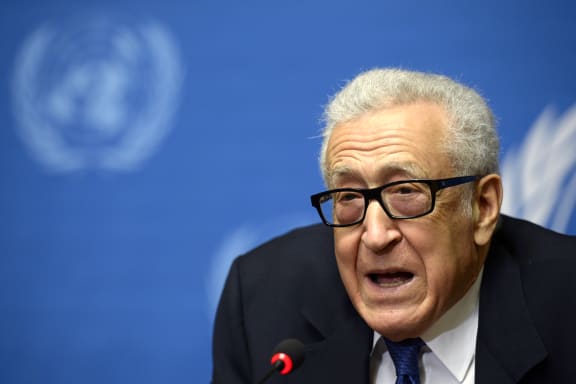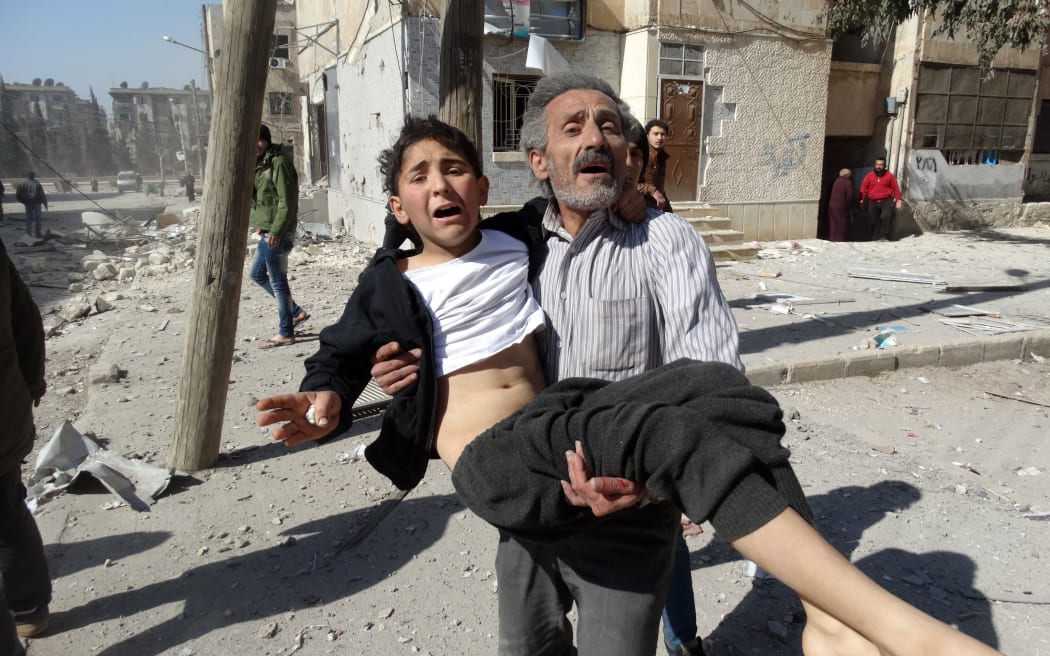A second round of talks between Syria's warring sides has ended in Geneva with little more than an agreement to meet again.
International mediator Lakhdar Brahimi apologised to the Syrian people for the lack of progress in talks involving opposition groups and representatives of President Bashar al-Assad.

UN mediator Lakhdar Brahimi apologised for the lack of progress. Photo: AFP
The Algerian-born diplomat said the agreement to evacuate people from the besieged city of Homs had raised hopes that had not been satisfied. "I am very, very sorry and I apologise to the Syrian people that their hopes, which were very, very high here, that something will happen here," he said.
Mr Brahimi said the "laborious" last session of the second round agreed on an agenda for the next round when it does take place.
He said both sides would need to reflect on their responsibilities before round three, and that the government in particular had to accept that the main objective of talks was transition.
The head of the International Committee of the Red Cross (ICRC) also stressed how meagre the results had been, saying an evacuation from Homs did not herald any wider improvement in humanitarian access to Syria's civil war zones.
ICRC President Peter Maurer said in a statement that the Syrian government and opposition still did not honour basic tenets of international humanitarian law, Reuters reports.

Residents flee an air strike on the outskirts of the northern city of Aleppo. Photo: AFP
The three-year-old Syrian conflict has killed more than 140,000 people - more than 7,000 of them children - according to the Syrian Observatory for Human Rights, and is destabilising the country's neighbours.
The pro-opposition Observatory, a British-based monitoring group, said around 6,000 Syrians have been killed since the latest talks started last month, the fastest death rate recorded since the country slid into conflict in 2011.
The rebels come mainly from Syria's majority Sunni Muslims and have been joined by radical Sunni groups such as al Qaeda and other foreign militants.
Shi'ite Muslim Iran and the powerful Lebanese Shi'ite movement Hezbollah have thrown their weight behind President Assad, who is from Syria's minority Alawite sect, an offshoot of Shi'ite Islam, and whose family has dominated Syria for 44 years.
Mr Brahimi said the points to be discussed at the next Geneva round included violence and terrorism, a transitional governing body, national institutions and national reconciliation.
However, he added, the Syrian government first wanted to deal with the issue of combating "terrorism" - the word it uses to describe armed opposition to Assad's rule - and had refused to deal with any other points until that was resolved.
Opposition National Coalition spokesman Louay Safi said there was "nothing positive" to take from round two, which lasted a week. The final session lasted around half an hour.
Syrian government delegate Bashar al-Jaafari, said the opposition wanted the issue of "terrorism" to stay open-ended. "Whoever refuses to fight terrorism is part of terrorism," he told reporters after the final session.
US President Barack Obama says the United States is considering putting more pressure on Syrian leader, Bashar al-Assad.
He was speaking after talks with Jordan's King Abdullah, during which Syria featured prominently.
The BBC reports that although no big decisions have been taken President Obama indicated that while his administration rethinks its options on Syria, he would already take some intermediate steps to apply more pressure on President Bashar al-Assad.

